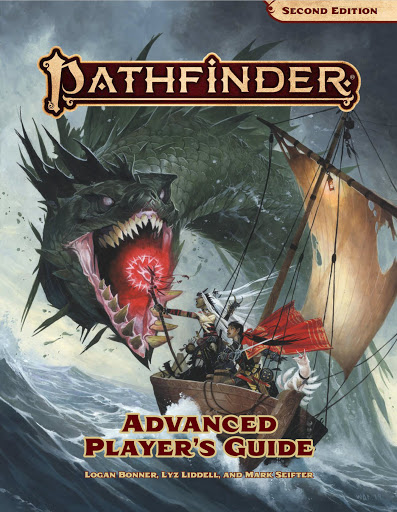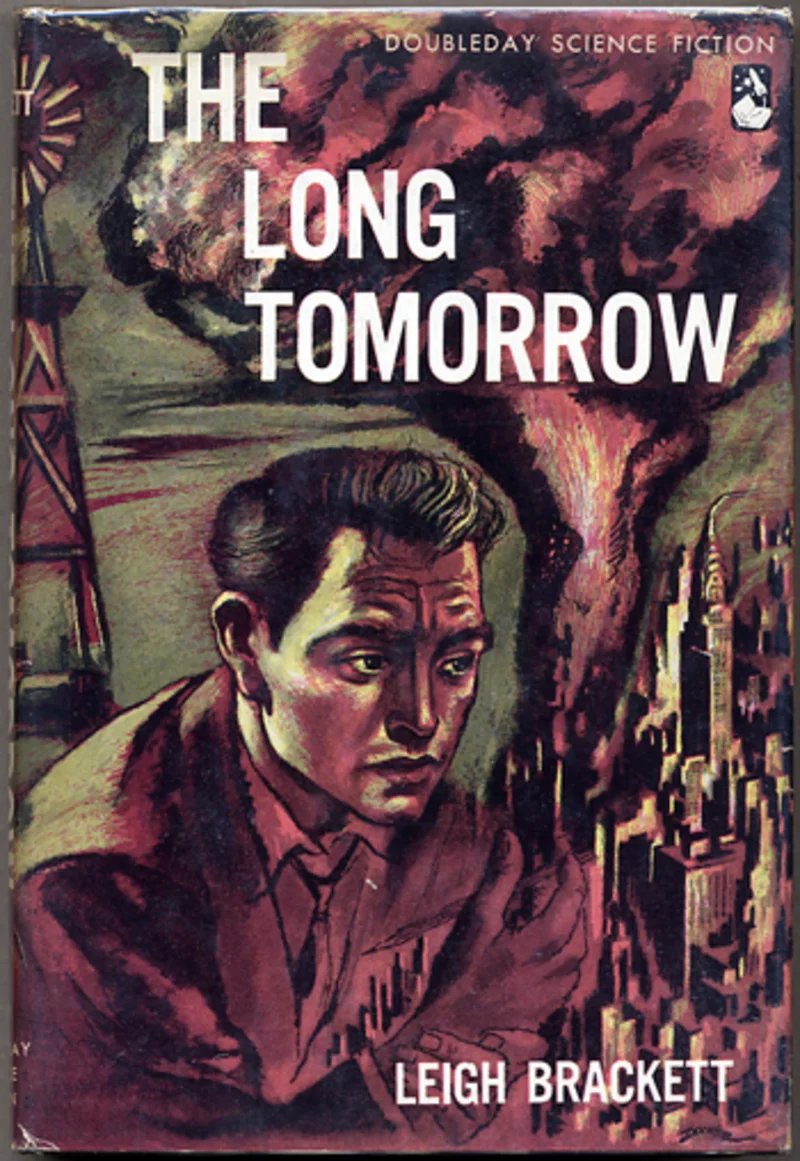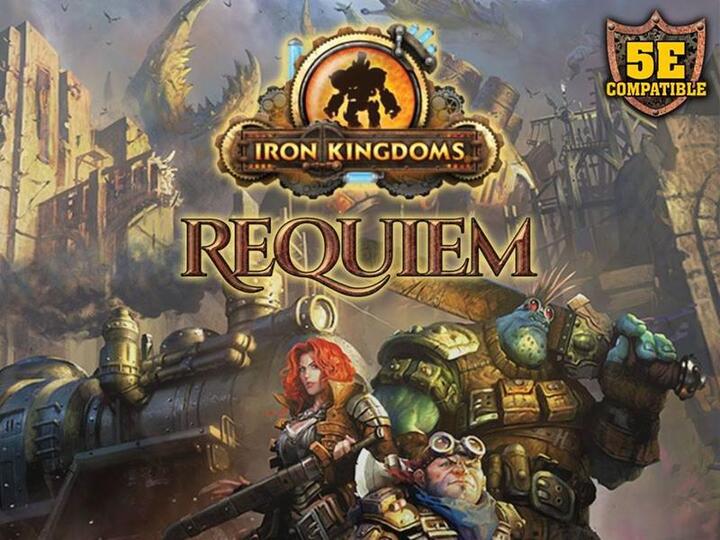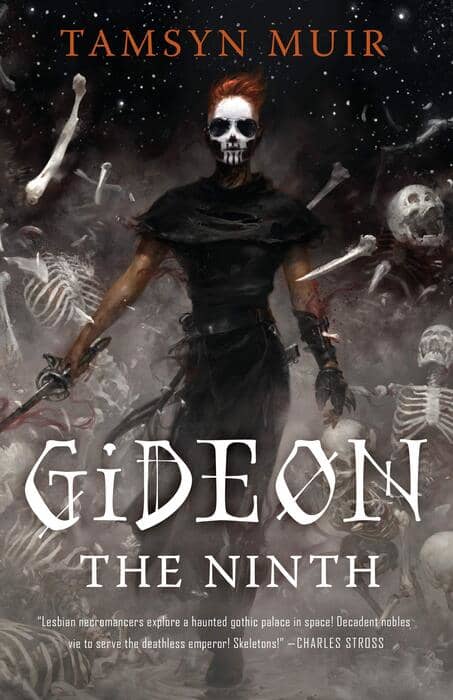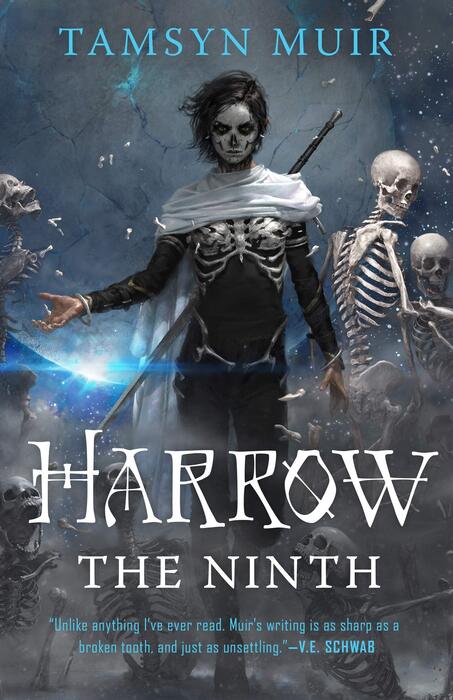Horrific Fright and Traumatic Scenes: The Only Good Indians by Stephen Graham Jones
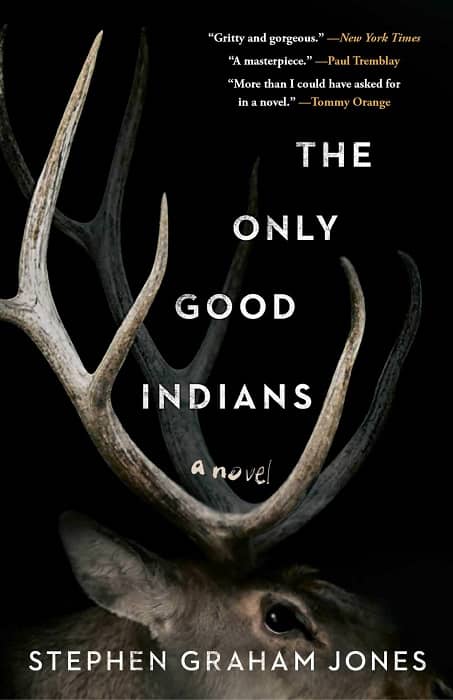 |
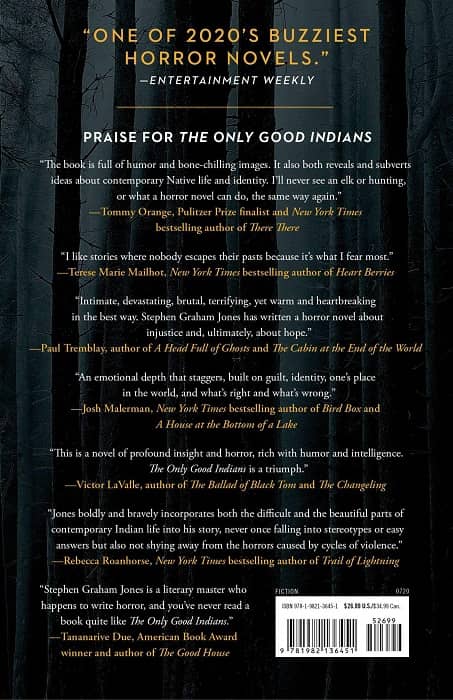 |
Cover designed by Ella Laytham
The Only Good Indians
Stephen Graham Jones
Saga Press (310 pages, $26.99 hardcover/$7.99 ebook, July 14, 2020)
Stephen Graham Jones has been a force on the horror scene for well over a decade now. His first major book Demon Theory came out back in 2007. But he quickly became a regular in many horror anthologies and magazines in the ensuing years and he has over two dozen books to his name including the amazing collection When the People Lights Go Out (2014) and his werewolf novel Mongrels (2016).
I first came across Stephen Graham Jones around 2013 in an anthology that included his gut-wrenching short-story “Father, Son, Holy Rabbit.” That story is still one of the most heartbreaking “horror” stories I’ve ever read. Another story of his that really sticks out to me is his “The Darkest Part” in Ellen Datlow’s edited Nightmare Carnival 2014, which I raved about here on Black Gate a few years ago. Though I have not read all of Jones’ stories, I have found him to have a consistent ability to evoke a range of raw emotions, all within the satisfying milieu of the clearly recognizable genre of supernatural horror.
Jones’ latest novel is no exception. The Only Good Indians is packed with wallops of horrific fright as well as some very upsetting and traumatic scenes, emotionally and viscerally so. Jones is himself Native American and most of his stories that I have read have Native American main characters. Given the title of his new novel, it should be no surprise that the main characters here are Native American as well. But The Only Good Indians also takes place within contemporary Native American life, including reservation or “rez” life: its idiosyncrasies, its glories, and most fervently of all, its tragedies.
And, in my humble opinion this is what makes The Only Good Indians so uniquely good — and for me, very thought-provoking.
